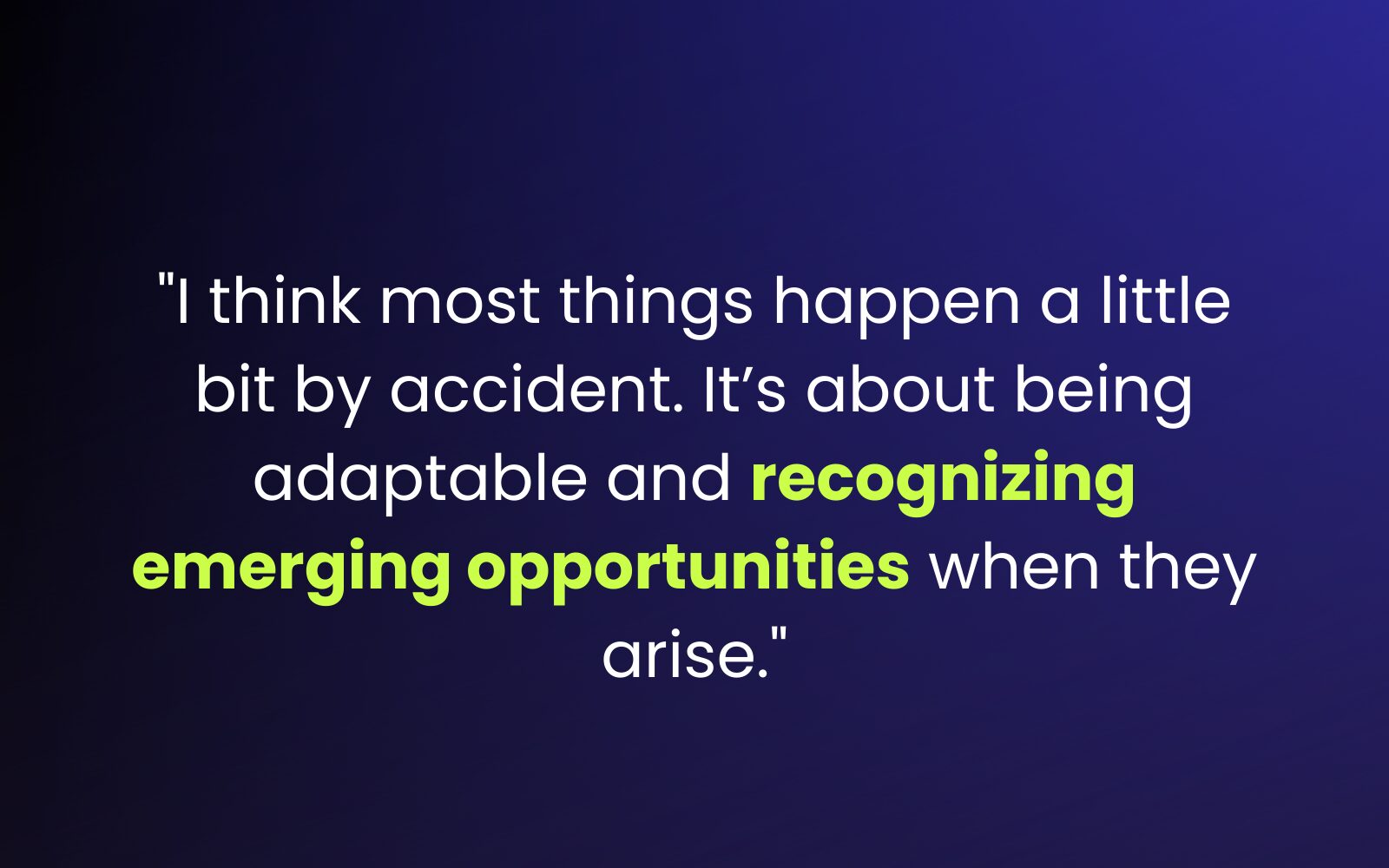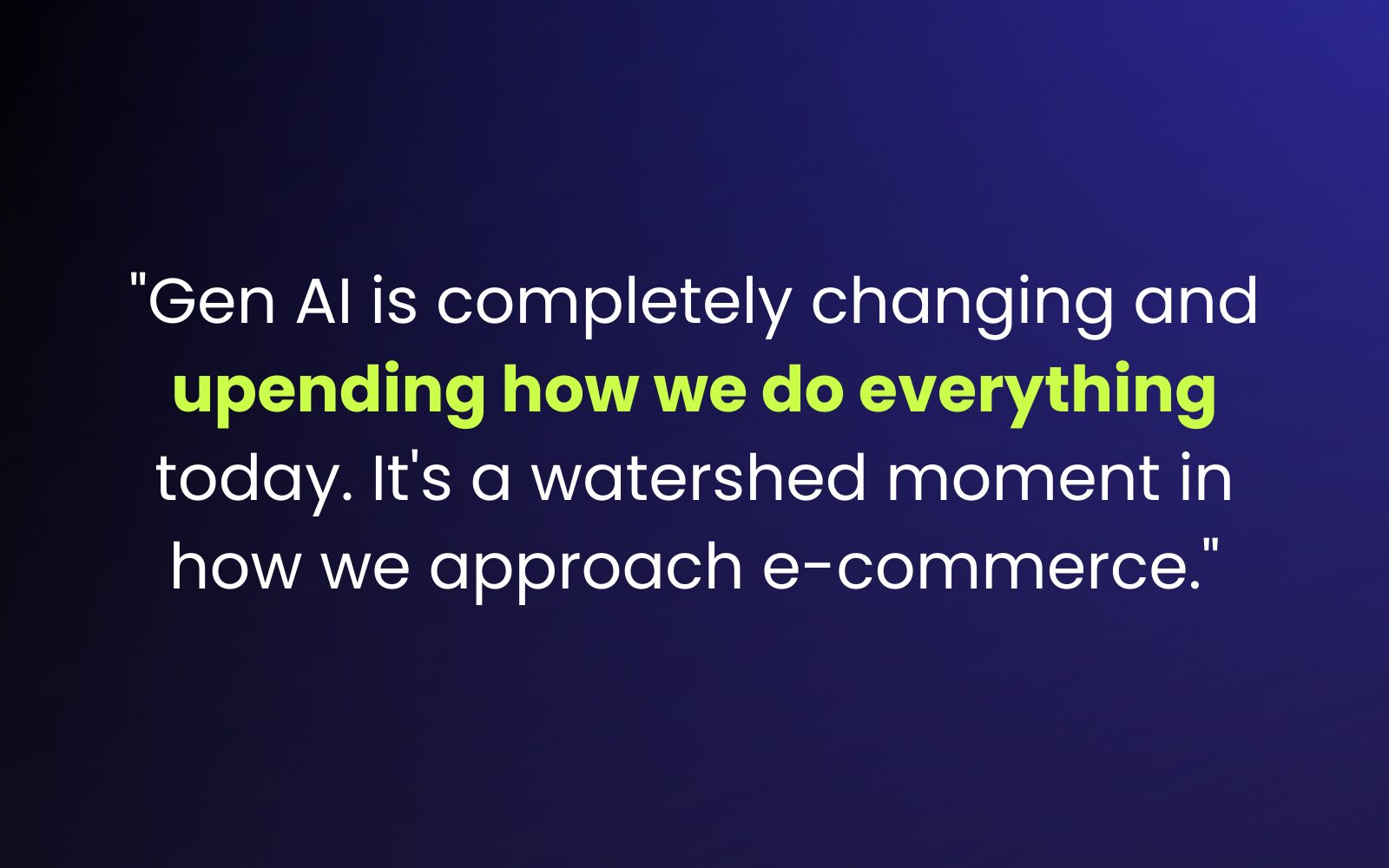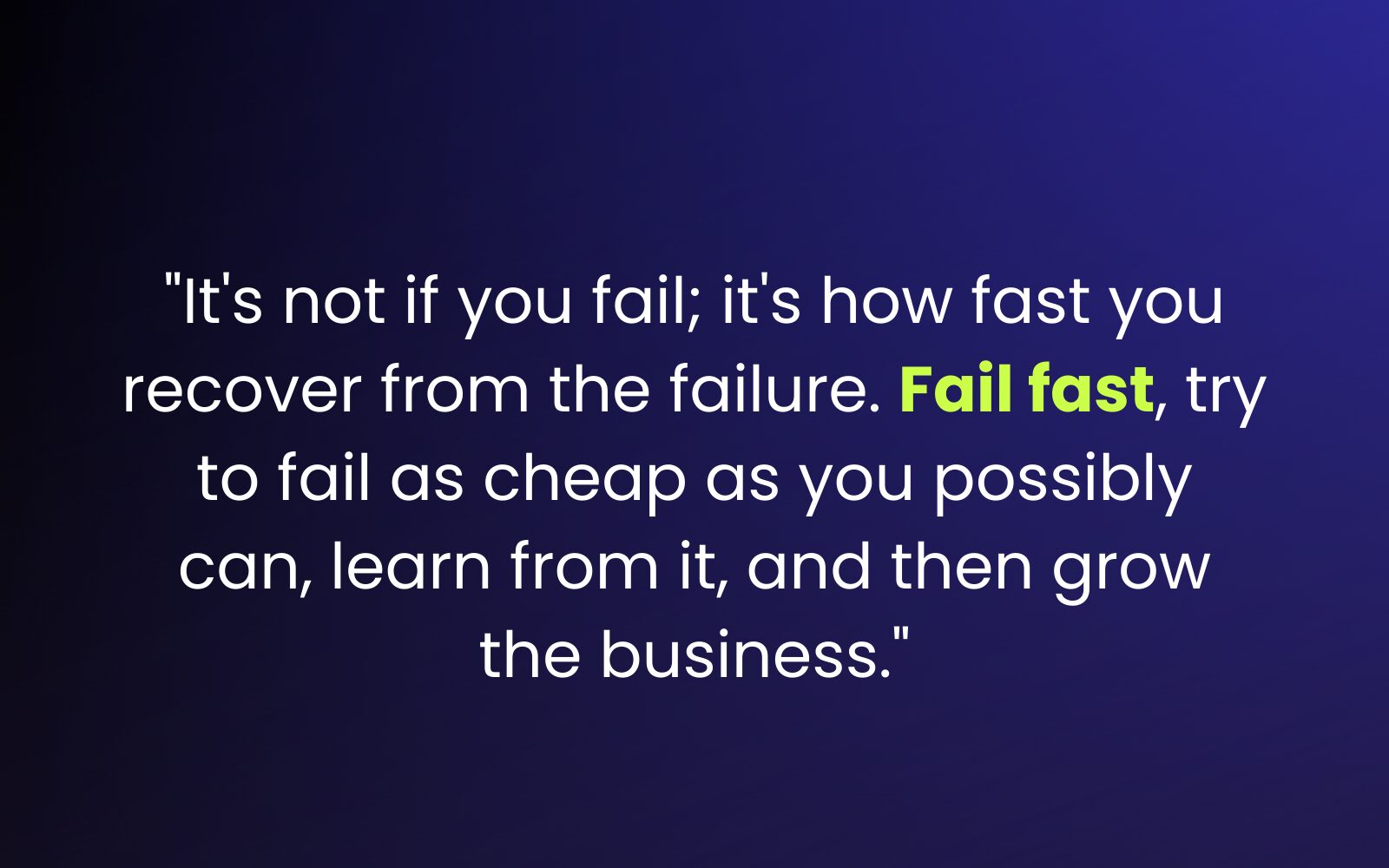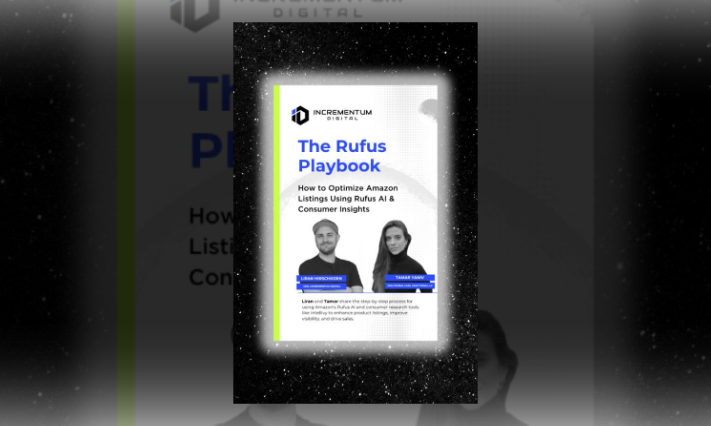Ecommerce Experts
Mastering Digital Marketing Strategies and Leadership: Insights from Andrew Freeman
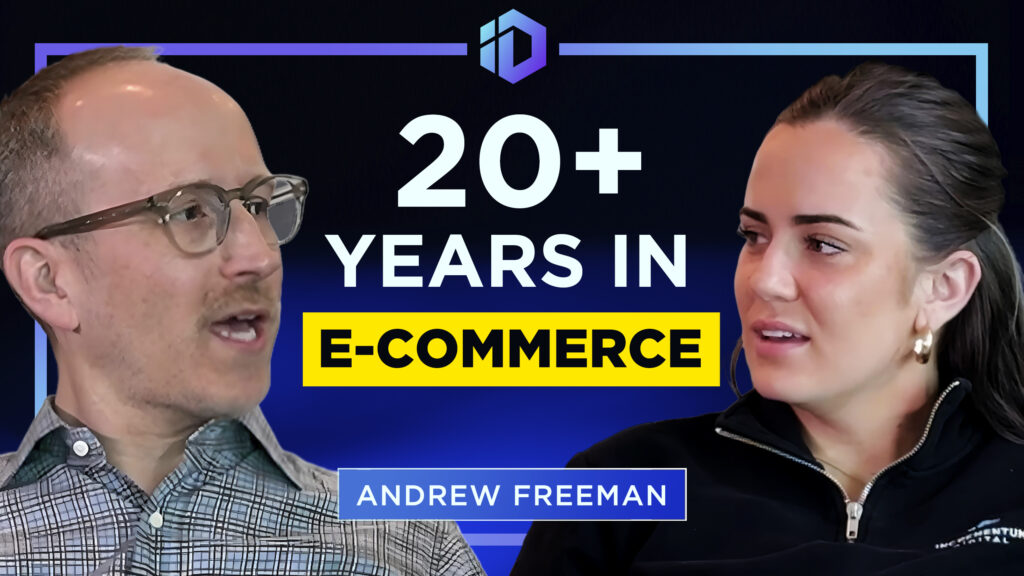
In 2024, global e-commerce sales are projected to reach $6.33 trillion, marking an 8.8% increase from the previous year. This rapid growth underscores the importance of honing your e-commerce strategies in the ever-evolving digital landscape.
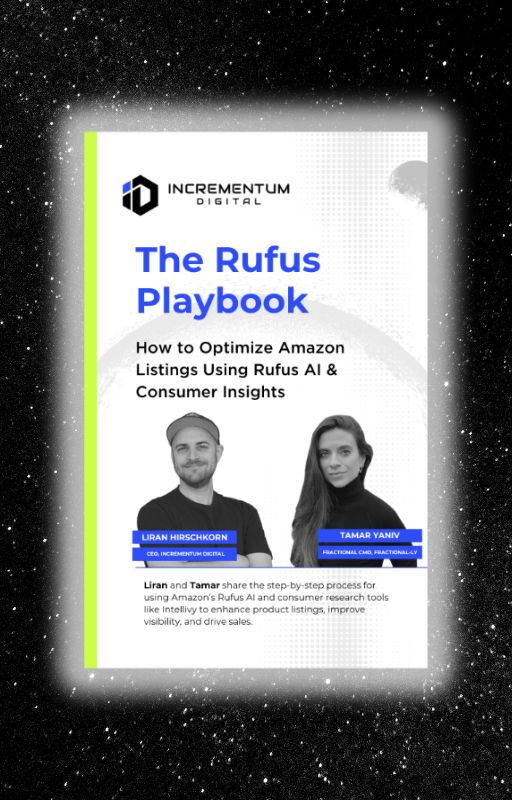
Learn How to Make Listings That Convert in 2025!
Read our step-by-step guide on how to optimize your listings using Rufus AI insights. Sign up for our newsletter and get your copy for free!
Show me howWe recently had an enlightening conversation with Andrew Freeman of Colgate-Palmolive Skin Health Group, about navigating the ever-changing e-commerce landscape. Andrew shared invaluable strategies that can help you fortify your business both now and in the future.
Read more to uncover these practical tips and learn how to stay ahead in this competitive market.
The Accidental Path to E-Commerce Success
“When I started university, I was very lucky that I went to one of the very few that actually had high-speed internet connection,” Andrew recalls. “That changed a lot of my thinking because before that, at home or anywhere else, it was dialup.”
Andrew’s journey into e-commerce began unexpectedly, shaped by a pivotal experience during his college years. This early exposure opened Andrew’s eyes to the potential of e-commerce in the future. “I felt like e-commerce was going to get bigger because, at that time, certain sites were already starting to do transactions,” he explains.
Despite graduating with a finance degree in 1998 when e-commerce roles were scarce, Andrew’s foresight and adaptability led him to pursue opportunities in this burgeoning field. “I think most things happen a little bit by accident. It’s about being adaptable and recognizing emerging opportunities when they arise,” he shares.
As such, his journey offers valuable lessons for anyone looking to excel in their industry:
- Embrace Technological Change: Just as high-speed internet transformed Andrew’s outlook, current advancements like AI and machine learning are revolutionizing e-commerce and digital marketing. Stay informed and ready to adapt to these changes.
- Seek Unexpected Opportunities: Opportunities often arise unexpectedly. Whether it’s a new platform, emerging trend, or innovative technology, being open to exploring these can lead to significant growth and competitive advantage.
- Foster Adaptability: Encourage your teams to be adaptable and agile in their roles. The ability to pivot and embrace new strategies is essential in today’s dynamic market.
The AI Boom: A New Era of E-Commerce
Reflecting on the technological advancements of the past and present, Andrew draws a compelling comparison: “High-speed internet in the 90s changed a lot of my thinking about the future of retail. E-commerce is the next big frontier, and AI is revolutionizing it today.”
Generative AI, in particular, is a game-changer. “Gen AI is completely changing and upending how we do everything today. It’s a watershed moment in how we do everything,” Andrew explains. From strategic planning to content creation, AI tools are enabling businesses to operate more efficiently and effectively.
For example, AI-driven content creation allows for personalized, high-quality product descriptions and marketing materials at scale. This not only saves time but also enhances customer engagement and conversion rates. In strategic planning, AI tools can analyze vast amounts of data for better decision-making and more targeted marketing strategies.
Digital marketing leaders can leverage AI to transform their operations:
- Enhance Content Creation: Utilize AI tools to generate personalized and engaging content that resonates with your target audience, improving customer experience and driving sales.
- Optimize Strategic Planning: Employ AI-driven analytics to gain deeper insights into market trends, consumer behavior, and campaign performance, enabling more informed and effective strategies.
- Improve Efficiency: Automate routine tasks with AI, freeing up your team to focus on high-impact activities and innovation.
On Avoiding Planning Pitfalls in E-Commerce Strategies
Having participated in countless strategic planning meetings, Andrew shares valuable observations on common mistakes leaders make: “Be careful what you’re hearing from technology providers. Understand the real value behind the buzzwords, and ensure it aligns with your business needs.”
One of the biggest pitfalls is falling for the hype surrounding new technologies without a critical evaluation. “It’s all about hype and what they’re doing now. How is it different from everybody else? If you sit and start listening to a lot of these companies, they all do the same thing; it’s just nuanced differences,” Andrew explains.
To avoid these pitfalls, Andrew advises:
- Critical Evaluation: Don’t take technology providers at face value. Ask for case studies, client references, and detailed explanations of how their solutions will address your specific needs.
- Understand the Details: Senior leaders should balance high-level strategic goals with an understanding of the technical details. Delegate deep dives to knowledgeable team members to ensure the technology aligns with your objectives.
- Alignment with Business Needs: Choose technologies that solve current problems as well as have the potential to grow with your business. Avoid solutions that look impressive but don’t provide tangible benefits.
And if you’re looking for some ideas in choosing the right Amazon agency, check out our Instagram Reel.
Building a Strong Company Culture
Reflecting on his time at Colgate, Andrew shares, “Colgate’s values are not just words on paper. They live these values, and it trickles down from the top, creating an incredible culture.”
A strong company culture is built on several key elements:
- Lived Values: “Our senior leadership team lives them out, and it really is felt. It’s one of those things that’s hard for a company to do well, but Colgate does it incredibly well,” Andrew emphasizes. When leaders embody the company’s values, it sets a standard for the entire organization.
- Supportive Leadership: “I truly feel like our leadership team functions as a family. We have relationships, we talk to each other outside of working hours, and we spend time together,” Andrew says. This level of camaraderie and mutual respect among leadership fosters a positive work environment.
- Innovation and Employee Satisfaction: A strong culture encourages innovation and ensures employee satisfaction. “One of the best cultures I’ve been in in a long, long time. It’s critically important because everything trickles down from the top,” Andrew notes. When employees feel valued and supported, they are more likely to contribute innovative ideas and stay committed to the company’s success.
Assess your own company culture and consider implementing values-based initiatives similar to Colgate’s. Fostering this supportive and value-driven environment can help you enhance employee satisfaction and drive innovation within your organization.
Besides this, you might also be interested in learning from Zappos’ unique approach to finding the right fit for their team.
Unique Challenges in the Skincare Niche
“Our relationship with our consumers is critical. In skincare, you’re addressing visible issues that impact lives, and that creates a deeper bond,” explains Andrew on the distinct nature of the skincare industry.
Building strong customer relationships is paramount. “We have a different conversation with our consumer because it’s a premium professional product,” Andrew explains. The personal and visible nature of skincare means consumers are more invested in finding solutions that work for them, fostering loyalty and trust.
Providing personalized recommendations is another crucial element. “We use an artificial intelligence bot that helps people create a recommendation based on their skin type, their needs, and their skin’s specific conditions,” Andrew shares. This personalized approach both enhances customer satisfaction and drives better results, leading to higher retention rates.
The role of AI in enhancing the customer experience and e-commerce strategies cannot be overstated. “AI helps us understand consumer behavior and preferences more deeply, allowing us to tailor our offerings and communication more effectively,” says Andrew. Skincare brands can use AI to provide customized experiences that resonate with individual consumers, ultimately driving sales and loyalty.
On The Importance of Digital Commerce Channels
Direct-to-consumer (DTC) and digital marketplace sales offer distinct advantages and challenges. Understanding the best approach for your brand can significantly impact the success of your e-commerce marketing strategy. Andrew contrasts the two approaches, emphasizing their unique benefits: “Direct-to-consumer channels offer a unique way to own the consumer relationship. For certain categories, this approach is not just beneficial but essential.”
On the other hand, digital commerce channels like Amazon play a crucial role across various industries. “Amazon is ideal for fast-moving consumer goods because people want to buy multiple items in one place,” Andrew explains. The convenience and reach of digital marketplaces make them indispensable for high-volume, everyday products.
However, certain categories benefit more from DTC strategies. “In Beauty and Personal Care, having a direct relationship with the customer is critical. It allows for personalized experiences and deeper engagement,” Andrew notes. For premium and specialized products, DTC channels enable brands to control the customer journey and build stronger loyalty.
Effectively managing these channels requires a nuanced approach. “You have to understand what your specific needs are as opposed to another category’s needs,” Andrew advises. This means tailoring your strategy based on product type, customer behavior, and market dynamics.
Therefore, brands should fine-tune their approach by implementing the following:
- Evaluate Your Product Category: Determine if your products are better suited for DTC channels or marketplaces like Amazon. High-volume, everyday products may thrive with the right e-commerce growth strategy in such marketplaces, while certain premium and specialized items can benefit from a DTC approach that allows for personalized customer experiences.
- Tailor Your Strategy: Customize your sales strategy based on your product type, customer behavior, and market dynamics. Understand the specific needs of your category to choose the most effective channels for reaching and engaging your target audience.
- Leverage Both Channels When Appropriate: Consider a hybrid approach that utilizes both DTC and e-commerce to maximize reach and customer engagement. This allows you to capitalize on the strengths of each channel, offering convenience through digital marketplaces and deeper relationships through DTC platforms.
However, regardless of whichever side of the spectrum your brand leans more towards, omnichannel engagement is crucial. Read more about how this approach can help your brand build brand loyalty.
Learning and Growing Through Career Relationships
Andrew emphasizes the importance of learning from both superiors and team members: “Every person you interact with is going to change you in some way.” This perspective underscores the continuous nature of professional growth through diverse interactions.
Diverse perspectives contribute to better strategies and innovation. “I’m always looking to hire the best and the brightest, bringing in people with very diverse talent,” Andrew says. Therefore, organizations can approach challenges creatively and effectively when they have a team with varied backgrounds and experiences.
Continuous learning is another crucial element. “You have to be willing to make yourself uncomfortable and stretch,” Andrew advises. Staying open to new ideas and experiences ensures ongoing development and adaptability in a fast-evolving industry.
- Engage in Continuous Learning: Stay open to new ideas and experiences to ensure ongoing professional development. Be willing to step out of your comfort zone and embrace learning opportunities.
- Foster a Diverse Team: Hire individuals with varied backgrounds and experiences to bring fresh perspectives and innovative solutions to your organization. Encourage collaboration and the exchange of diverse ideas.
- Participate in Networking Events: Actively engage in networking events and webinars to expand your professional connections. These interactions can provide valuable knowledge and enhance your strategic thinking.
Embracing Failure and Learning Quickly
Embracing the concept of “failing fast” can transform the way businesses approach growth and innovation. Learning from mistakes is a crucial step towards achieving long-term success.
Andrew shares a pivotal piece of advice he received early in his career: “It’s not if you fail; it’s how fast you recover from the failure.” This mindset encourages quick recovery and learning from mistakes, minimizing the impact of setbacks.
Failure is an inevitable part of innovation and growth. “Fail fast, try to fail as cheap as you possibly can, learn from it, and then grow the business,” Andrew explains. When failure is viewed as a learning opportunity, businesses can experiment and innovate without the fear of making mistakes.
Furthermore, Andrew emphasizes the importance of quick recovery: “Even if it costs us money, that’s fine. What’s important is to learn from the failure and move on.” This approach drives business growth and fosters a culture of resilience and continuous improvement.
Conclusion
Andrew’s observations highlight the power of adaptability, continuous learning, and leveraging technology to drive success. By embracing these principles and learning from his wealth of knowledge, you can navigate the dynamic e-commerce landscape with confidence and innovation.
To gain more insights from Andrew’s experiences and expertise, watch the full interview on YouTube here.
The quotes from Andrew Freeman have been copyedited for conciseness while preserving his statements’ original meaning and context.
LET’S DISCOVER WHAT’S POSSIBLE FOR YOUR BRAND
We’re here to listen and uncover opportunities tailored to your unique goals.
Fill out the form to get started, and you’ll walk away with real insights and actionable recommendations—whether we work together or not.
- HANDS-ON LEADERSHIP
- AWARD-WINNING PARTNERSHIPS
- CUSTOM-BUILT SOLUTIONS
